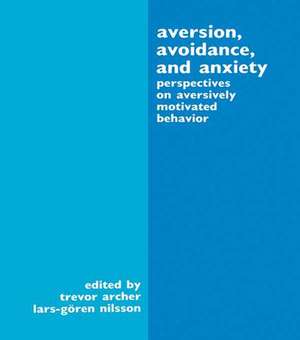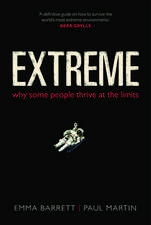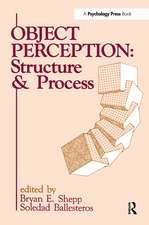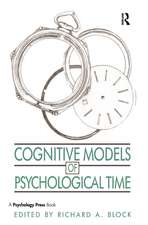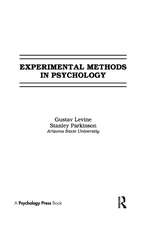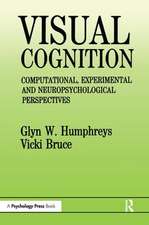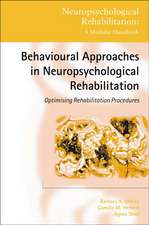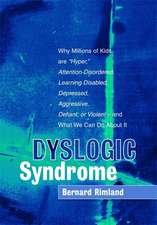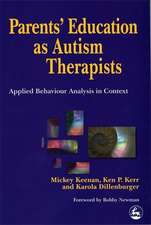Aversion, Avoidance, and Anxiety: Perspectives on Aversively Motivated Behavior
Editat de Trevor Archer, Lars-Goran Nilssonen Limba Engleză Paperback – 21 iul 2016
| Toate formatele și edițiile | Preț | Express |
|---|---|---|
| Paperback (1) | 218.38 lei 43-57 zile | |
| Taylor & Francis – 21 iul 2016 | 218.38 lei 43-57 zile | |
| Hardback (1) | 386.33 lei 43-57 zile | |
| Taylor & Francis – oct 1988 | 386.33 lei 43-57 zile |
Preț: 218.38 lei
Nou
Puncte Express: 328
Preț estimativ în valută:
41.79€ • 43.75$ • 34.58£
41.79€ • 43.75$ • 34.58£
Carte tipărită la comandă
Livrare economică 07-21 aprilie
Preluare comenzi: 021 569.72.76
Specificații
ISBN-13: 9781138964259
ISBN-10: 1138964255
Pagini: 508
Dimensiuni: 152 x 229 mm
Greutate: 0.45 kg
Ediția:1
Editura: Taylor & Francis
Colecția Psychology Press
Locul publicării:Oxford, United Kingdom
ISBN-10: 1138964255
Pagini: 508
Dimensiuni: 152 x 229 mm
Greutate: 0.45 kg
Ediția:1
Editura: Taylor & Francis
Colecția Psychology Press
Locul publicării:Oxford, United Kingdom
Public țintă
ProfessionalCuprins
Contents: Part I:Introduction. J.B. Overmier, T. Archer, Historical Perspectives on the Study of Aversively Motivated Behavior: History and New Look. Part II:Perspectives on the Determinants of Hedonic Value (Taste-Aversion Learning). J. Garcia, Food for Tolman: Cognition and Cathexis in Concert. P.O. Sj d n, T. Archer, Taste-Aversion Conditioning: The Role of Contextual Stimuli. F. Berm dez-Rattoni, M.A. S nches, R.A. Prado-Alcal , Learning of External and Visceral Cue Consequences May Be Subserved by Different Neuroanatomical Substrates. Part III:Clinical Perspectives on Aversively Motivated Behavior. K. Hugdahl, Human Pavlovian Aversive Conditioning: Effects of Brain Asymmetry and Stimulus Lateralization. A. hman, U. Dimberg, F. Esteves, Preattentive Activation of Aversive Emotions. S. Mineka, A.J. Tomarken, The Role of Cognitive Biases in the Origins and Maintenances of Fear and Anxiety Disorders. Part IV:Neurobiological Perspectives on Aversively Motivated Behavior. J.L. McGaugh, I.B. Introini-Collison, A.H. Naghara, L. Cahill, Involvement of the Amygdala in Hormonal and Neurotransmitter Interactions in the Modulation of Memory Storage. R.F. Thompson, The Essential Memory Trace Circuit and the Essential Reinforcement System for a Basic Form of Associative Learning. R.J. Beninger, The Role of Serotonin and Dopamine in Learning to Avoid Aversive Stimuli. Part V:Cognitive Perspectives. S-A. Christianson, L-G. Nilsson, Hysterical Amnesia: A Case of Aversively Motivated Isolation of Memory. E.F. Loftus, S-A. Christianson, Malleability of Memory for Emotional Events. M.W. Eysenck, Anxiety and Cognition: Theory and Research. Part VI:Neuroethological Perspectives on Aversively Motivated Behavior. G. Bignami, To Go or Not to Go in Aversive Paradigms: Preparedness and Other Questions. Part VII:Methodological and Conceptual Perspectives on Aversive Conditioning. R.A. Boakes, How One Might Find Evidence for Conditioning in Adult Humans. R.M. Church, The Yoked Control Design. T. Sagvolden, Experimental Designs in Behavioral Studies. Part VIII:Summary and Integration. L-G. Nilsson, T. Archer, Aversively Motivated Behavior: Which Are the Perspectives?
Notă biografică
Trevor Archer, Lars-Goran Nilsson
